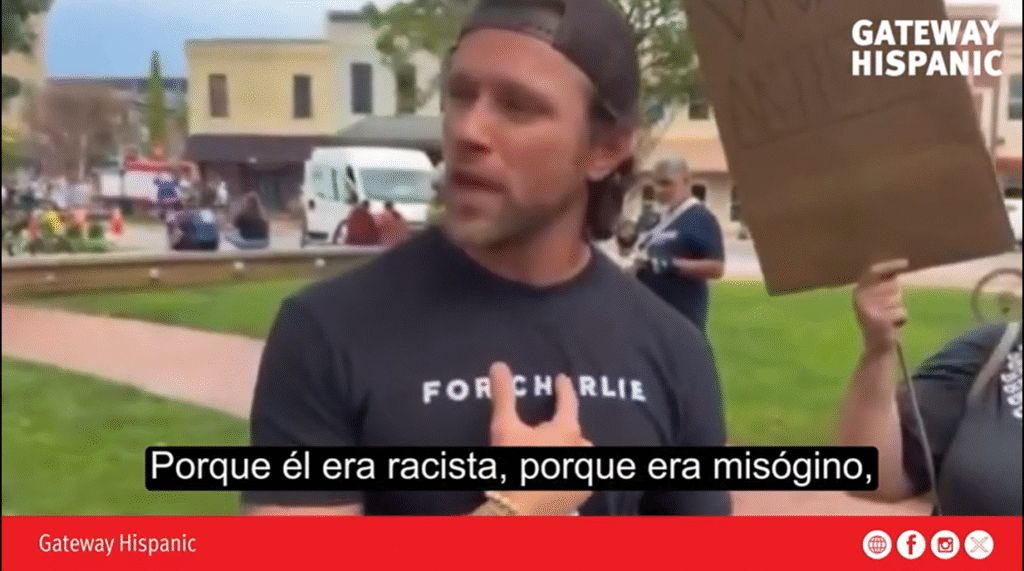A new viral video has ignited debate over free speech and the growing political intolerance in the United States. In the footage, a woman identified with liberal views reacts furiously upon seeing a man wearing a T-shirt supporting Charlie Kirk, founder of Turning Point USA and a well-known conservative commentator.
The video shows the woman berating the young man with insults and accusations of racism, misogyny, and hate—simply for wearing the shirt. “You’re upset because Charlie’s on there, right? Because he was racist, because he was misogynistic, and that means you are too, because you support him. Get out! Get out of here! He hated people; yes, he just hated anyone who wasn’t white, who wasn’t a man, who wasn’t heterosexual,” the visibly enraged protester shouted as several bystanders watched the scene in disbelief.
What could have been a simple exchange of opinions turned into yet another example of how political polarization has contaminated public spaces. For many social media users, the woman’s attitude represents the double standard of certain sectors of today’s left: they promote tolerance and inclusion, but react aggressively when someone expresses a different opinion or wears symbols associated with conservative thought.
Political analysts have noted that such incidents reflect a dangerous trend toward social censorship, where ideological labels replace dialogue. The fact that someone can be verbally attacked for showing sympathy toward a political figure or conservative movement exposes the erosion of respect for dissent and diversity of thought. Instead of debating ideas, some resort to instant moral disqualification, reducing public discourse to an emotional and irrational confrontation.
Charlie Kirk, a frequent figure on university campuses and in media debates, has been the subject of controversy for his direct speech and defense of traditional values. However, his supporters argue that he has been the victim of a systematic smear campaign by liberal media and progressive activists who distort his positions to portray him as a symbol of conservative extremism.
The incident has reignited discussion about the limits of free speech and political tolerance. Defenders of the First Amendment emphasize that no one should be harassed or expelled from a public space for expressing their ideas or political preferences. “Freedom of speech doesn’t just mean protecting what’s popular—it means protecting what makes people uncomfortable,” commented a political communication professor on social media after watching the video.
On the other hand, some liberal users justified the woman’s reaction, arguing that figures like Kirk promote rhetoric that “harms minorities” and “shouldn’t have space in the public sphere.” However, that stance—according to independent observers—ends up reproducing the same kind of exclusion it claims to fight against, turning progressive activism into a form of emotional and collective censorship.
Beyond the isolated incident, the video raises a central dilemma in contemporary society: can a true culture of tolerance exist if only one way of thinking is allowed? The scene reveals that the problem is not only political but also cultural and educational. Instead of fostering dialogue, universities, social media, and media outlets seem to have turned disagreement into a trigger for personal attacks.
In conclusion, the altercation not only exposes the fragility of the progressive discourse when faced with differing opinions but also highlights the urgent need to restore respect for ideological diversity. What began as a simple T-shirt ended up exposing the deep divide that separates American society—a nation where the right to free expression increasingly collides with the harsh judgment of intolerance disguised as virtue.
Read the full article here


